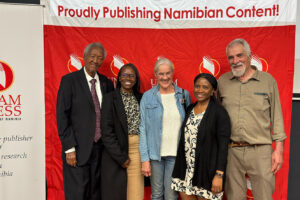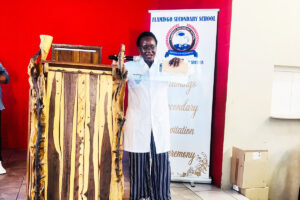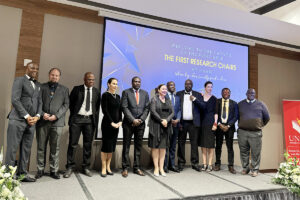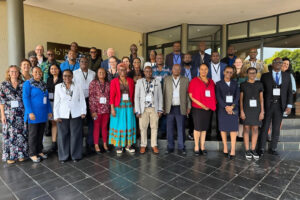In partnership with the University of Namibia, in addition to the initial machine availed at the launch of the lab in August 2020, Debmarine Namibia has recently sponsored a second PCR machine in an effort to accelerate the country’s Covid-19 testing capacity.
The PCR laboratory is based at the UNAM Hage Geingob Campus, managed by the School of Medicine.
Apart from the PCR Covid-19 testing system, the additional laboratory testing kit comes with power protection equipment for the purpose of safeguarding the system against power surges, and also to protect computing equipment and the integrity of sample runs that might be in progress.
UNAM experts from the School of Medicine currently run the facility. It was made clear at the launch that the PCR machine, valued at more than N$3.6 million, aimed to play a vital role in the turnaround time for results. The laboratory can now analyse at least 500 samples every eight hours.
The establishment of the testing laboratory at the University of Namibia has increased the diagnostic and prognostic testing process of Covid-19 and complement efforts by the Namibia Institute of Pathology (NIP) and accelerate the country’s testing capacity. NIP helped UNAM acquire the license by guiding them through the strict licensing process.
Debmarine Namibia’s CEO, Otto Shikongo remarked, “We remain committed to support and strengthen government’s efforts in managing Covid-19. Safety is a non-negotiable core value in our business.
“Winning the war against the pandemic requires collective efforts by partnering with communities to build capacity that benefits all.
“For this reason, Debmarine Namibia once again teamed up with the University of Namibia – School of Medicine by sponsoring additional PCR equipment.”

UNAM Vice Chancellor, Professor Kenneth Matengu said, “UNAM is immensely grateful and proud for the continued vote of confidence bestowed by Debmarine Namibia.
“In addition to adding to the country’s testing capacity, we intend to use these machines for research and their myriad of applications to contribute to capacity and the knowledge economy.”





